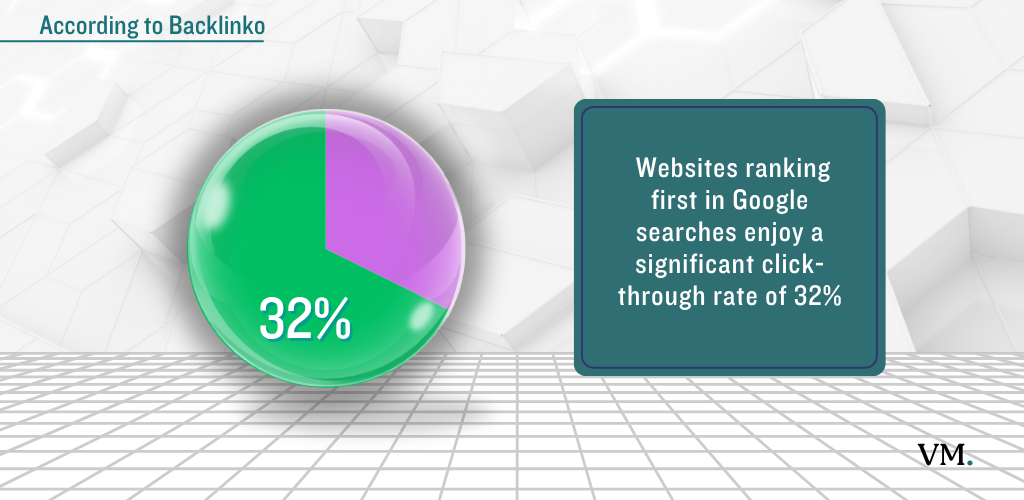Finding new customers is crucial for any local business’s success. In today’s digital landscape, having a strong online presence is essential. This is where local SEO pros and cons, comes into play.
This article examines the local SEO pros and cons to help you decide if it’s the right strategy for your business. We will cover several important aspects of local SEO, including search engine optimization, website design, Google Business Profile optimization, content marketing, and more, to provide you with a complete understanding of what local SEO entails.
The Power of Showing Up Locally
Think about the last time you searched for a “restaurant near me” or a “plumber in [your city].” You probably relied on Google to guide you. That’s the essence of local SEO — it makes your business visible to potential customers searching for products or services in your area.
Let’s face it: appearing on that first page of Google search results, especially within those coveted top spots, is a game-changer. Appearing in local search results is especially important for small businesses with physical locations, as it allows potential customers to easily find and visit them.
A Backlinko study discovered that websites ranking first in Google searches enjoy a significant click-through rate of 32%. To put this into perspective, businesses lagging in the tenth position only manage a meager 0.78% click-through rate. So yes, being in those prime search result spots directly impacts how many people click through to your website, boosting your conversion rate.

Increased Visibility and Traffic
One of the biggest benefits of local SEO is its potential to improve your online visibility among local customers. When done well, local SEO can push your business higher up on search results pages, enhancing local visibility and attracting more potential customers.
Why does this matter? Because research by Shane Barker suggests a surprising 46% of Google searches involve local keywords, showing just how many people look for businesses online.
If you are a local business owner, you want to show up when potential customers are looking for services or products that you provide. Ranking well for “near me” searches is crucial, with a large portion of online users specifically looking for businesses within their immediate vicinity. In fact, research shows that over a third of consumers in the United States use “near me” searches or do local business research every day, relying on online search results. This makes optimizing your online presence for these types of searches an important aspect of any successful local SEO strategy.
Think about it this way. If you run a pizza place in Chicago, someone searching “best pizza Chicago” or even “pizza near me” while in Chicago should find your restaurant in their search results. Appearing higher up on that list means a larger number of potential customers are more likely to visit your website and hopefully become loyal patrons. $
And isn’t it fascinating that a large number of purchases people make offline begin with research done online? It has been found that at least 80% of customers start their buying journey online, even if the actual transaction happens in a physical store later on. This only stresses the importance of a robust online presence for brick-and-mortar stores, helping you tap into this large pool of potential customers.
Boosting Your Business’s Credibility
It isn’t just about showing up, it’s about establishing trust as well. Think about it: don’t you feel more confident clicking on a website that’s among the first few search results? Most of us instinctively trust Google’s judgment in ranking sites.
A business that pops up organically at the top of a local SEO search benefits from that inherent trust. And when you keep showing up in local searches, it helps cement your business’s reputation as a reliable name within the community, building valuable social proof.
This is where online reviews come into the picture. With sites like Yelp influencing customer decisions, managing those reviews becomes an important task. Don’t underestimate their impact: almost 9 out of 10 shoppers trust online reviews just as much as recommendations they get from people they know personally.
88% of people place equal importance on what strangers online say compared to opinions from friends and family, proving that online reviews carry weight. They have become word-of-mouth marketing for the digital age, so prioritize managing and building a positive reputation on relevant review platforms to build credibility and attract more customers. Positive customer reviews act as testimonials and can significantly influence the decision-making process of potential customers.
Driving In-Store Traffic
Now, let’s address a crucial point. Some may question the value of investing in local SEO, particularly those catering to specific locations. What’s the point of attracting customers online if you’re not an e-commerce business? This is where we dispel the myth that online visibility solely translates to online sales. While attracting online traffic to your website is important, remember that online presence can serve as a gateway for people to visit physical stores as well.
If a potential customer in your city discovers your store online and sees a steady stream of positive reviews, they’re more likely to hop in their car and head your way. By optimizing your website and online presence for local SEO, you can effectively bridge the gap between the digital and physical worlds, driving more foot traffic to your brick-and-mortar store.
Here’s an intriguing point: mobile devices heavily influence these local searches. Think about it — most people search for “open now near me” while out and about, phone in hand. In fact, Think with Google highlighted that searches containing “open now near me” saw a whopping increase of more than 400% in recent years.
And here’s where it gets interesting. People aren’t searching this way because they are bored, but with the intention to act quickly. This means that by optimizing your website for mobile devices, you can capture a larger share of this on-the-go traffic and convert them into paying customers.
A significant 76% of people who searched for a business on their smartphones visit those businesses on the same day, making those “near me” searches some of the most valuable in turning online visibility into real-world foot traffic. And these individuals mean business, as 28% of searches that had “local intent” lead to a purchase, which is huge.
They demonstrate that local searches have a remarkable capacity for turning online curiosity into in-store purchases, highlighting the importance of optimizing your online presence for local search. Consider this: even before stepping into a store for a big purchase, a massive 80% of consumers in the United States admit to doing their research online. This underlines that having a robust online presence for any brick-and-mortar business, regardless of size or what it’s selling is crucial to capturing a huge part of the buying audience.
Ensure that your website provides all the necessary information, such as your address, phone number, business hours, and customer reviews, to make it easy for potential customers to find and contact you.
Cost-Effectiveness
Let’s not forget about budgets — especially when you’re running a local business, where every dollar counts. Paid advertising can drain your resources quickly, often with no guarantees of actual conversions. This is where local SEO emerges as a more budget-friendly option for small businesses, providing a cost-effective way to reach your target audience and achieve your marketing goals.
Consider Google My Business — a free platform every business can use to boost its local SEO standing. Claiming this listing and optimizing it with accurate, detailed, and engaging content can make a huge difference without spending anything.
Additionally, there are a number of other free or low-cost local SEO tools and resources available to businesses of all sizes. By taking advantage of these resources, you can stretch your marketing budget further and maximize your return on investment.
Also, it’s interesting how the perception of marketing changed over time. Gone are the days of blindly placing an ad in the local paper, hoping it catches someone’s eye. Today, it’s all about providing valuable information at the exact moment someone is looking for it. If someone is researching, chances are they’ll end up on Google first, seeking out answers and insights to guide their choices.
Appearing organically within relevant searches means you’re marketing smarter, not just harder. Local SEO allows you to connect with potential customers precisely when they are actively searching for products or services like yours, increasing the likelihood of conversion.
Weighing the Potential Challenges of Local SEO
But wait. Before diving headfirst into the world of local SEO, there are some challenges and considerations every business must understand. Because just like every good investment decision requires you to look at the big picture, weighing the potential downsides before jumping in is key.
It’s important to have a realistic understanding of both the benefits and drawbacks of local SEO before investing time and resources into it.
It Takes Patience and Consistency
Don’t buy into the hype of get-rich-quick SEO tactics. Contrary to what some so-called experts claim, local SEO is about gradually building a strong foundation — it’s a marathon, not a sprint, so be patient. It takes time and ongoing effort for search engine algorithms to recognize your legitimacy and bump your site higher on those coveted search results pages. Achieving sustainable results with local SEO is a gradual process that requires a long-term perspective.
Think of it like building a loyal customer base. Rome wasn’t built in a day and neither is a thriving local SEO strategy, it takes consistency. Continuously refining your approach by incorporating relevant local keywords in your website content, actively managing your online reviews, and building quality backlinks through collaborations takes dedication but reaps great benefits. By consistently implementing effective local SEO strategies, you can gradually improve your online visibility and attract a steady stream of local customers.
Fierce Local Competition
In crowded markets with several businesses vying for attention, ranking high can feel like climbing Mount Everest. For local businesses, it’s essential to be prepared for tough competition because many might be after the same keywords and customers you are after. Just look at restaurant businesses, which need to navigate this challenging landscape constantly. This emphasizes the need for creating top-notch, unique, and locally relevant content that helps you stand out from the competition.
Think about it: If a potential customer is looking for “best coffee Seattle” and your competitor offers amazing blog content, they may rank higher. Local SEO is about continually improving content to stand out and capture the attention of your target audience. Regularly creating and sharing valuable, engaging, and informative content related to your products, services, and industry is essential to establishing yourself as a thought leader and attracting more customers.
Keeping Up with Ever-Changing Algorithms
Brace yourselves. One thing that’s constant in the online world is its ever-changing nature. Those clever people at Google are continuously updating their algorithms, so what works today might not be effective tomorrow.
Local businesses must stay informed on those algorithmic shifts, regularly revisiting and adapting SEO strategies to maintain a competitive edge. Just remember, that’s the nature of the game. And failing to evolve could mean losing your hard-earned position in local search results.
Conclusion
As more and more people use Google to find local products and services, implementing some basic SEO practices and affordablle services has never been more crucial.
The question is, is local SEO worth it? Well, with such fierce competition for that first page of Google, along with consumers being bombarded with marketing, ranking high in search results is a pretty solid indicator that you’re doing something right. You are responsible in using the best local SEO tools to succeed. Local SEO can significantly impact your business’s online visibility, customer base, and overall success.
We’ve weighed the local SEO pros and cons and when done right, it positions your business in front of the right customers at the exact moment they’re searching. While navigating the complexities of local SEO might seem challenging at first, remember its potential for turning that online visibility into a flood of in-store customers and higher revenue. It’s an essential aspect of digital marketing for any business that serves a local customer base.
FAQ
What is the best thing to do for local SEO?
Prioritizing claiming and regularly updating your Google Business Profile with accurate information should be high on the list. Treat it like your online storefront. This includes your business name, address, phone number, website, hours of operation, and customer reviews. Ensure your business information is consistent across all online directories and platforms.
Is local SEO profitable?
While it doesn’t offer overnight riches, it delivers lasting value by connecting your business with local customers seeking what you offer. Building brand visibility, driving traffic to both your physical store and online platforms can lead to increased conversions and stronger brand awareness within your area. All of this has the potential to convert into higher revenue streams. It’s a smart, long-term investment that strengthens your brand’s foundation.
Is doing a local SEO worth it?
Yes. Local SEO, if done well, can do wonders, particularly for businesses that depend on their geographic area for a client base. Local SEO is particularly effective for businesses with physical locations, such as restaurants, retail stores, and service providers, as it helps them attract more foot traffic.
What are the cons of local SEO?
Some potential drawbacks of local SEO include the need for consistent effort and the constantly evolving nature of search engine algorithms, which necessitate ongoing adaptation. It’s an ongoing process that requires dedication, adaptability, and a deep understanding of the local market.
Share:




